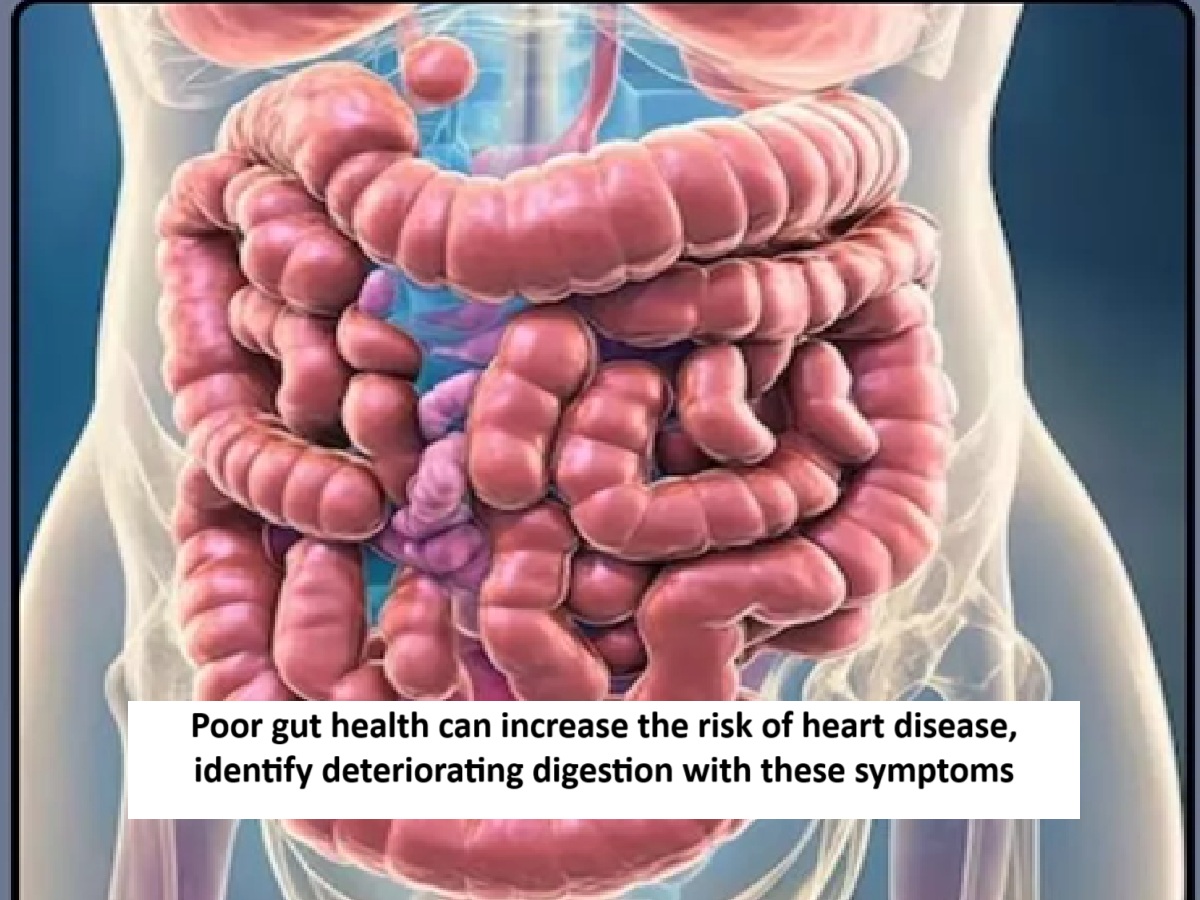
News Topical, Digital Desk : Everyone knows that the way to the heart is through the stomach, but do you know that the secret of heart health is also linked to your gut health. Yes, you read it right. Your gut health plays an important role in your overall health and can also determine your risk of heart disease.
An unhealthy gut can trigger chronic inflammation, increase cholesterol levels and disrupt blood pressure regulation, increasing the risk of heart diseases. Poor digestion, bloating, fatigue and irregular bowel movements are not just digestive problems but can be factors affecting your heart. A recent study revealed how poor gut health increases your risk of heart disease. Let's know about this study in detail-
What does the study say?
A study published in Circulation Research found a significant link between gut microbiota and heart health. Researchers say "dysbiosis," an imbalance in gut bacteria, is not just a digestive problem but also a major cause of heart-related problems such as atherosclerosis, high blood pressure and heart failure.
How gut health affects heart health
- Damage to the gut lining allows toxins to enter the bloodstream. This leads to the chronic inflammation associated with heart disease . Over time, this damages the immune response tissue, increasing the risk of heart disease.
- Unhealthy gut bacteria produce chemicals such as TMAO, which increase cholesterol accumulation and artery stiffness. Such imbalances also interfere with fat metabolism, which further increases the likelihood of plaque accumulation in the arteries.
- Additionally, a bad gut can have a negative impact on metabolism, leading to diseases like obesity and diabetes. Both of these health conditions are risk factors for heart disease.
How to identify poor gut health
- Persistent bloating and stomach pain can be a sign of poor digestion, which can trigger chronic inflammation linked to heart problems.
- Chronic constipation or irregular bowel movements indicate a sluggish gut microbiome, which impacts nutrient absorption and increases metabolic stress.
- Unexplained fatigue and low energy are also signs of poor gut health. Poor gut health can lead to poor nutrient absorption and impaired hormone regulation, leading to fatigue and low energy levels.
- Frequent infections due to weak immunity is also a sign of poor gut health.
- Complaints of too much gas or indigestion are also not common. If you are having this problem continuously, it means that your gut health has deteriorated.
- Persistent diarrhea can lead to depletion of electrolytes and nutrients essential for heart health.
- Acid reflux or heartburn that persists is also a sign of poor gut health.
- If you still have bad breath despite good oral hygiene, it often indicates a bacterial imbalance in the gut.
Read More: Could relying solely on the HbA1c test for diabetes be wrong? Learn the truth from an AIIMS doctor.
--Advertisement--

 Share
Share



